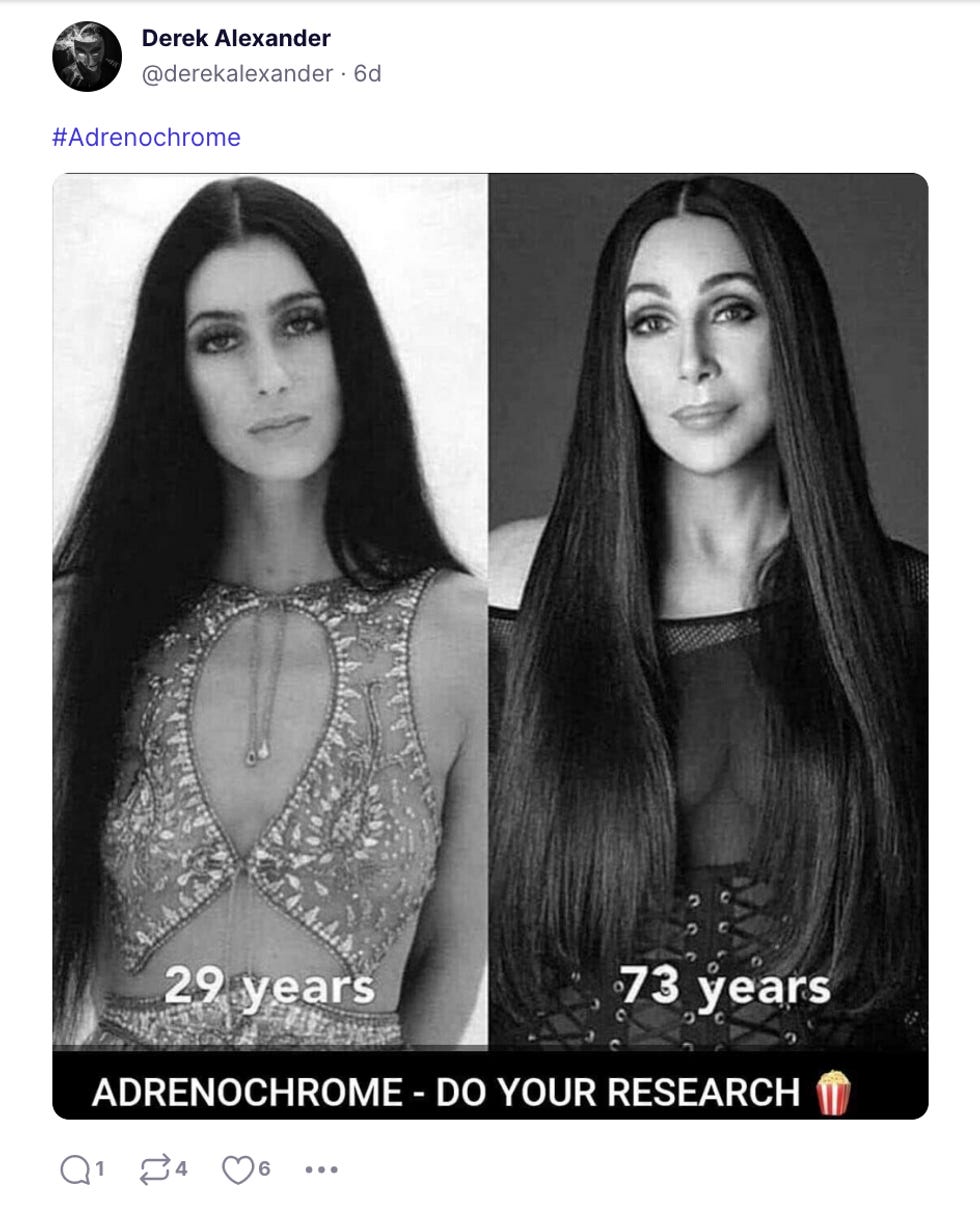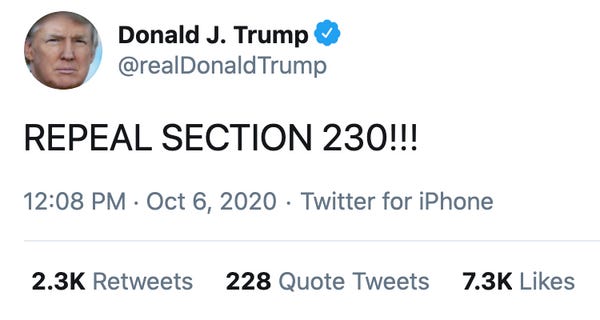So About All The Murder Plans On Trump's Platform 'Truth Social'
He should be very glad he lost his bid to amend the Communications Decency Act.
Of all of the terrible things Donald Trump did throughout his presidency, his refusal to sign the $740 billion National Defense Authorization for 2021 was perhaps the least objectionable. At least to those of us who think we have perhaps gone a bit overboard with that, given that we spend more on our "defense" than the next nine countries combined , while talking about how there is just no money for things that would improve the everyday lives of American citizens.
But the reason Trump vetoed the bill was not because "maybe we should wait until we have universal pre-K or single payer or have eliminated student debt before buying the military yet another batch of $10,000 toilet seats," but rather because it did not eliminate theentirely unrelated Section 230 of the 1996 Communications Decency Act. Section 230, for much of Trump's presidency, was his white whale — though it was never 100 percent clear that he even knew what it was or what getting rid of it would actually do.
Frequently referred to as the 26 words that created the internet, Section 230 holds that "No provider or user of an interactive computer service shall be treated as the publisher or speaker of any information provided by another information content provider." This means, basically, that whereas traditional publishers can be held liable for what they publish, websites are allowed to moderate content as they see fit without being held civilly or criminally liable for any content that users publish in the comments.
Trump and others wanted to get rid of it mostly because they wanted to punish Twitter and Facebook for "censoring" conservatives by banning them for threatening violence, engaging in targeted harassment, spreading conspiracy theories, and being generally racist, misogynistic, and bigoted.
There was a lot of crying about "the town square" and "free speech," but ultimately what it came down to is that they understood that if the beliefs, values and behavior of the far Right were considered so beyond the pale that they could not be allowed on Twitter or Facebook, then it would be a lot harder to normalize them — while their presence would also make the beliefs, values, and behavior of the regular Right seem moderate and reasonable by comparison.
The thing about the opposition to Section 230 is that it was never really thought through, at least not by those who bought the line that it would bolster rather than inhibit freedom of speech. It was always just about punishing their enemies, without any full understanding that these things work both ways. Kind of the same deal as Trump's big "opening up the libel laws" plan.
But right now, Donald Trump should be pretty darned happy that his dream never came entirely true. Because if Section 230 did not exist, he and his social media site Truth Social could be in some pretty big legal trouble. He is obviously already in deep trouble over a bunch of other things right now, what with all the (alleged) nuclear secrets he's been hiding in what was supposed to be Melania's third shoe closet, but it's Section 230 that is preventing things from getting even worse for him.
Ricky Shiffer, the man who attacked an FBI office this week before dying in a shootout with law enforcement, posted excessively on the site about his desire to kill FBI agents and encouraged others to do the same.
As we reported on Friday, Shiffer even went so far as to write, "No, I am proposing war. Be ready to kill the enemy, not mass shootings where leftists go, not lighting busses on fire with transexuals in them, not finding people with leftist signs in their yards and beating them up. Violence is not(all) terrorism. Kill the F.B.I. on sight, and be ready to takedown other active enemies of the people and those who try to prevent you from doing it."
Were Section 230 in place, Truth Social could be held liable for this — because a phrase like "Kill the F.B.I. on sight" is not protected speech, it is an incitement to violence. If any FBI agents were killed, their families could potentially have sued Trump and Truth social for giving Shiffer a platform to incite violence. Section 230 says they can't.
They could also be held liable for all of the other incitements to violence on the site, perhaps some of the calls to civil war, and definitely a whole bunch of the libel. So, so much libel. After all, the site has become a haven for the QAnon movement and they sure do have some interesting and extremely libelous ideas about things. (You do not want to subscribe to their newsletter.)
Like this person here accusing my precious Cher of staying young and beautiful by consuming adrenochrome harvested from terrified mole children.

LEAVE CHER ALONE!
While the site apparently has no qualms about banning or shadowbanning people for saying things it doesn't like — and in fact bans all sexual content and explicit language entirely — it seems that "Kill all the FBI agents" just does not qualify. And hey! that's their choice if that's what they think they should have on their site. Personally I think most social media sites could probably do without homicidal threats. But without the protections Section 230 provides, it would not have been their choice at all.
Do your Amazon shopping through this link, because reasons .
Wonkette is independent and fully funded by readers like you. Click below to tip us!




I was saying it isn't baby eating, and anyone who has been around the last 40 years knows that.
Nah. Once they graduate from college, they should immediately be put in upper-level management positions, so they can change it all up and tell the olds how it really is. Oh, and buy a house. Just like all the boomers got to. Right?